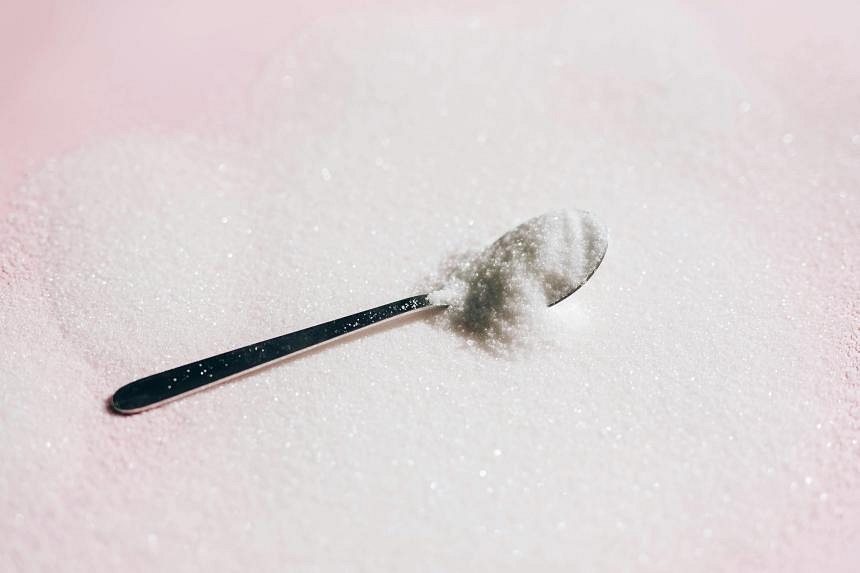NEW YORK – A low-calorie sweetener called xylitol used in many reduced-sugar foods and consumer products such as gum and toothpaste may be linked to nearly twice the risk of heart attacks, stroke and death in people who consume the highest levels of the sweetener, a new study found.
“We gave healthy volunteers a typical drink with xylitol to see how high the levels would get and they went up 1,000-fold,” said senior study author Dr Stanley Hazen, director of the Center for Cardiovascular Diagnostics and Prevention at the Cleveland Clinic Lerner Research Institute.
“When you eat sugar, your glucose level may go up 10 per cent or 20 per cent but it doesn’t go up a 1,000-fold,” said Dr Hazen, who also directs the Cleveland Clinic’s Center for Microbiome and Human Health.
“Humankind has not experienced levels of xylitol this high except within the last couple of decades when we began ingesting completely contrived and sugar-substituted processed foods,” he added.
Worrisome blood clots occur
In 2023, the same researchers found similar results for another low-calorie sweetener called erythritol, which is used as a bulking sugar in stevia, monkfruit and keto reduced-sugar products.
Additional lab and animal research presented in both papers revealed erythritol and xylitol may cause blood platelets to clot more readily. Clots can break off and travel to the heart, triggering a heart attack, or to the brain, triggering a stroke.
In the new study on xylitol, “differences in platelet behavior were seen even after a person consumed a modest quantity of xylitol in a drink typical of a portion consumed in real life,” said Dr Matthew Tomey, a cardiologist at Mount Sinai Fuster Heart Hospital in New York City, who was not involved in the study.
“These experiments are interesting but alone do not prove that platelet abnormalities are to account for a linkage between xylitol and clinical events,” said Dr Tomey, who is also an assistant professor of medicine at the Icahn School of Medicine at Mount Sinai.
Some 61 per cent of American adults will have cardiovascular disease by 2050, according to a recent prediction by the American Heart Association. Reducing clotting activity is a key treatment used by cardiologists, so any additional clotting in platelets is a bad sign, said Dr Andrew Freeman, director of cardiovascular prevention and wellness at National Jewish Health in Denver.
“When someone has a heart attack, we give them aspirin or drugs like clopidogrel, or Plavix, to counter platelet activity. These sugar alcohols appear to be enhancing platelet activity, which is concerning,” said Dr Freeman, who was not associated with the new research.
“This is another warning we ought to switch to water, with a close second being unsweetened tea or coffee,” he said.
Ms Carla Saunders, president of the Calorie Control Council, an industry association, told CNN that the study results “are contrary to decades of scientific evidence substantiating the safety and efficacy of low-calorie sweeteners such as xylitol by global health and regulatory agencies. These findings are a disservice to those who rely on alternative sweeteners as a tool to improve their health.”
What is xylitol?
As sweet as sugar with less than half the calories, xylitol is often used in sugarless gum, breath mints, toothpaste, mouthwash, cough syrup and chewable vitamins. It is frequently added in larger quantities to candy, baked goods, cake mixes, barbecue sauces, ketchup, peanut butter, puddings, pancake syrup and more.
Xylitol is a sugar alcohol, a carbohydrate found naturally in foods such as cauliflower, eggplant, lettuce, mushrooms, spinach, plums, raspberries and strawberries. However, the amount of xylitol found in such natural sources is tiny, Dr Hazen said.
“If you actually do the calculation, it literally takes a tonnage of fruit to be equivalent to one diabetic cookie that can have like nine grams of xylitol, which is a typical label amount,” he said. “It would be like eating salt at the level of a salt lick.”

